|
|
|
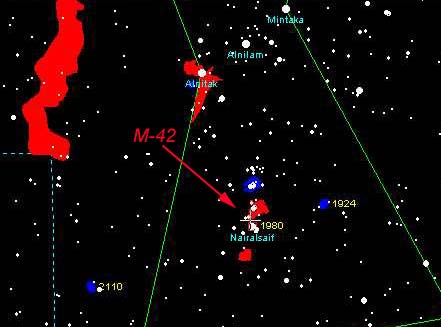 |
Size: 60.0 arcmin Magnitude: 4 RA: 05h 35m 0s Dec: -05 d 25m 0s |
| M-42 is a easy object for amateur scopes. Even binoculars will show the great nebula as a fuzzy patch of light, similar to the image below taken with the Nikon Camera. | |
|
|
|
 |
Size: 60.0 arcmin Magnitude: 4 RA: 05h 35m 0s Dec: -05 d 25m 0s |
| M-42 is a easy object for amateur scopes. Even binoculars will show the great nebula as a fuzzy patch of light, similar to the image below taken with the Nikon Camera. | |
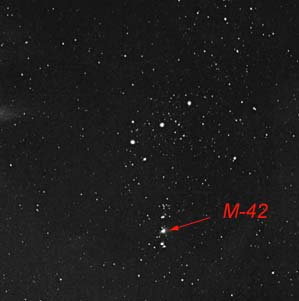 |
Scope: Nikon 28 mm Lens |
| Kodak Tri-X ISO 400 | |
| Focal Ratio: f3.5 | |
| Exposure: 1 min | |
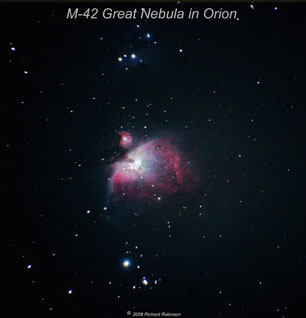
|
Scope: 90 mm Orion MAK 500 |
| Canon EOS 20D @ ISO 3200 | |
| Focal Ratio: f5.5 | |
| Exposure: 2 min for nebula regions, 10 sec for central region. ISO 3200 is very fast. | |
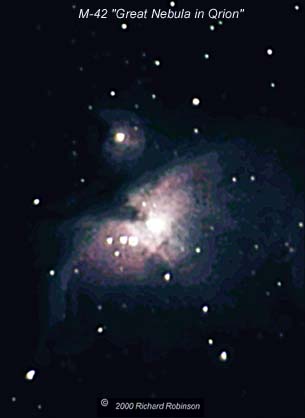 |
Scope: 90 mm Orion MAK 500 |
| M-5C CCD Camera | |
| Focal Ratio: f5.5 | |
| Exposure: 8 min for nebula regions, 1 min for central region | |
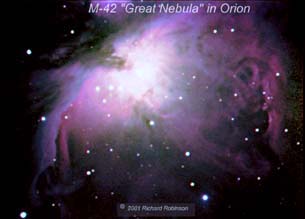 |
Scope: 8" LX 200 SCT |
| MX-5C CCD Camera and STAR 2000 Autoguider | |
| Focal Ratio: f3.3 | |
| Exposure: 15 min for nebula regions, 2 min for central region. Processed in Photoshop w/ Mask. | |
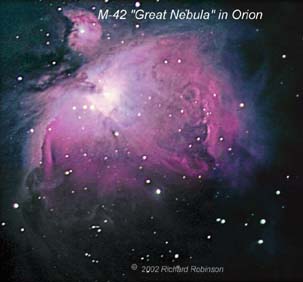 |
Scope: 8" LX 200 SCT |
| MX-5C CCD Camera and STAR 2000 Autoguider | |
| Focal Ratio: f3.3 | |
| Exposure: Four 20 min for nebula regions, 30 seconds for central region. Processed in Photoshop w/ Mask. | |
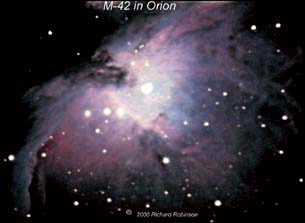 |
Scope: 8" LX 200 SCT |
| MX-5C CCD Camera | |
| Focal Ratio: f4 | |
| Exposure: 4 min for nebula regions, 1 min for central region. Processed in Photoshop w/ Mask. | |
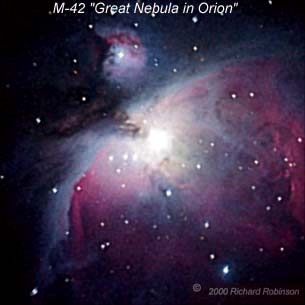 An image for comparison between film and CCD imagining. The 35 mm FOV is much larges even at f10 and the colors are much more subtle. Click here for a larger image. |
Scope: 8" LX 200 SCT |
| Nikon w/ Kodak MAX 800; guided w/ MX-5C & STAR 2000 | |
| Focal Ratio: f10 | |
| Exposure: Two 15 minute exposures combined in MaxIm DL and processed in Photoshop. | |
|
|
|